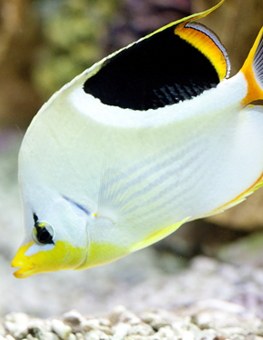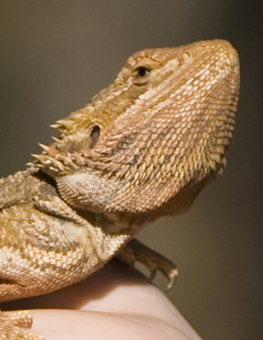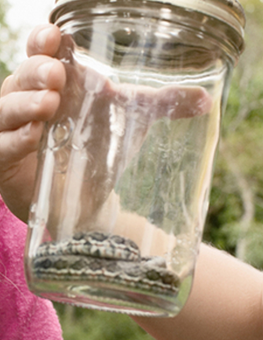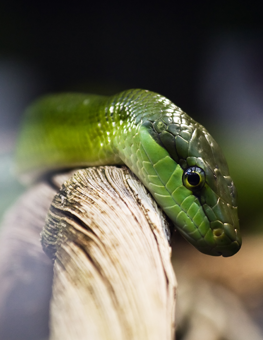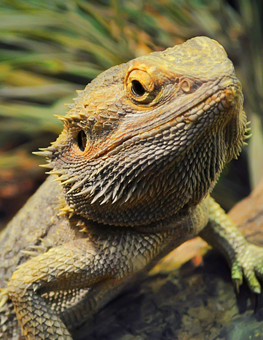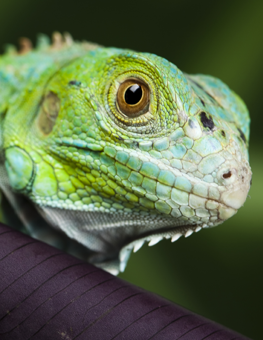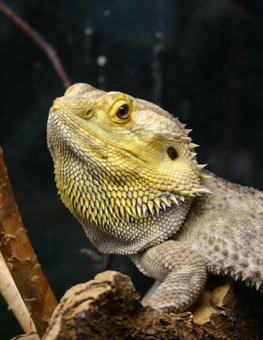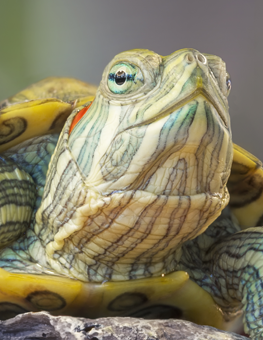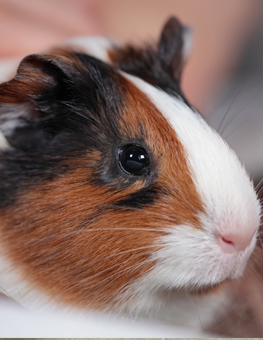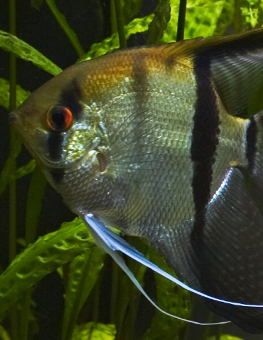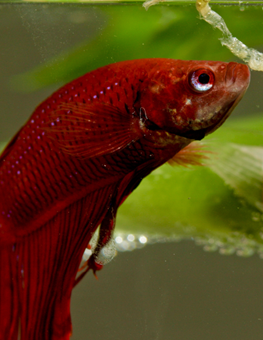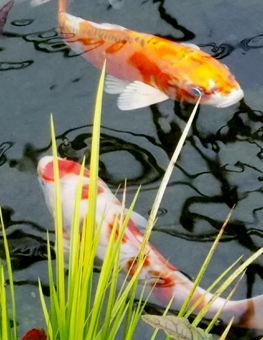A Reptile’s Daily Diet
Inexpensive, readily available "people" foods are good for some but not all.
What reptiles like to eat is as specific as how they like to acquire it. Many reptiles can be happy with inexpensive, readily available "people" foods. But, as you will see from the guide below, many need live insects and small animals to subsist. The nutritive requirements for specific animals can be broken down into a few different general groups:
Insectivores - Many reptiles survive mainly on a diet of live insects such as flies, crickets, worms and their offspring. While some captive reptiles will accept non-living insects, most reptiles are genetically fated to being attracted only to live, ambulatory meals. It is the movement of the prey that initiates the reptile’s feeding instinct.
Popular reptiles such as Geckos, Skinks and Anoles are insectivores. The insects that these pets need do not usually contain enough nutritive value to keep reptiles in fighting form. You may have to "gutload" your feeder crickets or worms with high-value nutritive foods and additives. Alternatively, simply purchase commercially-produced crickets and worms that have been pre-fattened.
Herbivores - A diet of fresh green vegetables, fruit, and commercial "kibble" will suit the herbivore. They even find the occasional flower to be a sumptuous treat. Serve a variety — don’t rely on just one food type. And, as you would in your own pantry, remember to remove uneaten food promptly and keep all foods and liquids fresh.
The ever-popular Green Iguana is a shining example of an herbivorous reptile.
Omnivores - Bugs, veggies, fruit, small animals, fish...it’s all good for this group. Some reptiles lean in one direction more than others. So if you’re housing an omnivore, seek advice on the proper mix of food types.
Many Turtles can be considered part of this group.
Carnivores - Mice and rats, or freshly killed, warm-blooded flesh satisfies this group. Take care to provide only commercially-produced meals, since the risk of animal-borne parasites and disease is much greater with "street" vermin. Also keep the meals small and manageable; larger animals can actually harm your reptile in self-defense. Fortunately, feeding carnivores need only be a weekly occurrence.
Monitor Lizards and Snakes are the most common members of this group.




